Vertigo (1958)
“One doesn’t often get a second chance.”
|
Synopsis: |
|
Genres, Themes, Actors, and Directors:
Response to Peary’s Review: To say more about the film’s suspenseful, psychologically intense storyline is to immediately give away spoilers; unfortunately Peary’s entire review (like most you’ll find online) is simply riddled with them. Suffice it to say that a significant death occurs about halfway through the film, and a further critical plot twist is revealed about 2/3rds of the way through — both of which should come as a deliciously unexpected surprise to novice viewers, thus adding to the film’s enduring legacy as a first-rate thriller. With that said, I’ll agree with Peary that the “unique and brilliant” structure of the film — in which “the picture becomes an intense, psychological character study of Scottie” rather than a potential murder mystery — is somewhat “infuriating”; like Peary, “I prefer the mystery unraveling to Scottie unraveling and becoming unbearably obsessive, tyrannical, and self-destructive”. Plus, as he notes, the surprisingly “tragic ending is… unsatisfying and depressing”. Vertigo — which in recent years has steadily scaled the ranks of various highly regarded “best movie” lists, especially since a gorgeous restoration was completed in 1996 — is often cited as Hitchcock’s masterpiece, and certainly remains one of his most discussed and analyzed films. This is due in part to the fact that the story — in which middle-aged Stewart develops a near-pathological obsession with an aloof “icy blonde” — seems to mirror Hitchcock’s own idiosyncratic fascination with such women. However, while I admire the film on many levels, it’s ultimately not a personal favorite. Scottie’s treatment of Novak eventually becomes far too disturbing to easily stomach, and it’s not much fun to witness Hitchcock’s relentless assertion that when “given a choice of women, men are so weak they’ll always pick the helpless over the independent, the attractive over the plain, the frigid over the accessible, and the illusionary over the real” — indeed, the character of Barbara Bel Geddes’ “Midge” (Stewart’s ex-fiancee, who harbors an enduring crush on him) is never allowed to become anything more than a sorry symbol for everything “normal” and healthy Stewart is rejecting. Yet regardless of how film fanatics may feel about the film’s ultimate ranking within Hitchcock’s pantheon, there’s much about it to enjoy — including Novak’s surprisingly nuanced performance(s), excellent use of Bay Area locales, and Bernard Herrmann’s justifiably celebrated score (one of his best). It remains a classic film ffs won’t want to miss viewing at least once — and likely more often, simply to absorb its complex psychological layering and storyline. Redeeming Qualities and Moments:
Must See? Categories
(Listed in 1001 Movies You Must See Before You Die) Links: (spoilers in nearly every review – be forewarned!) |
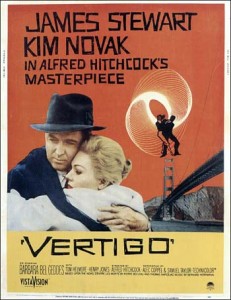
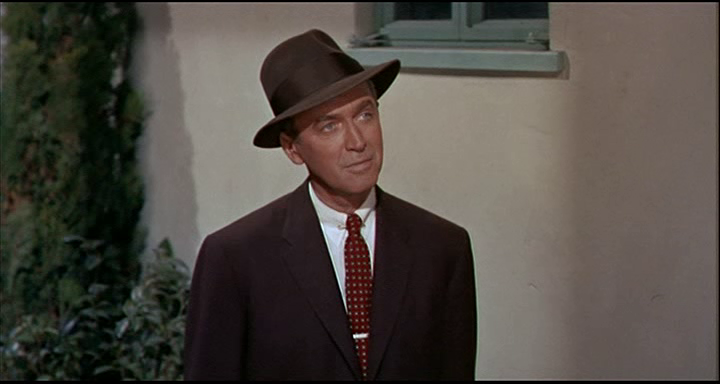
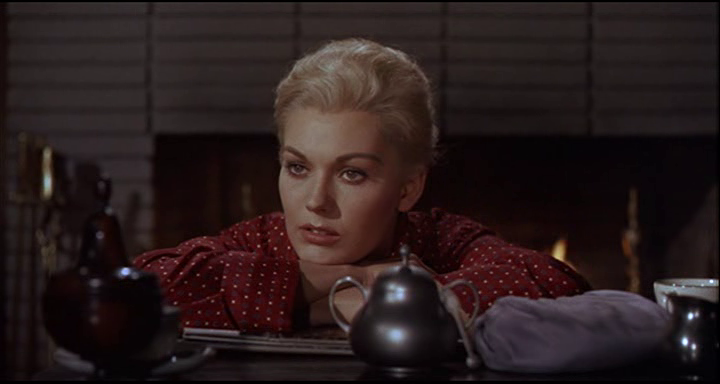
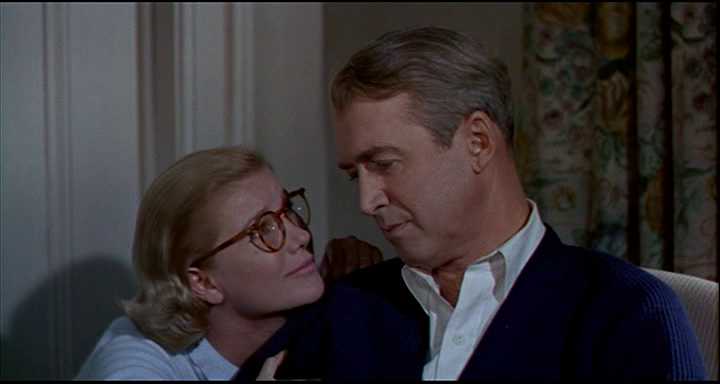
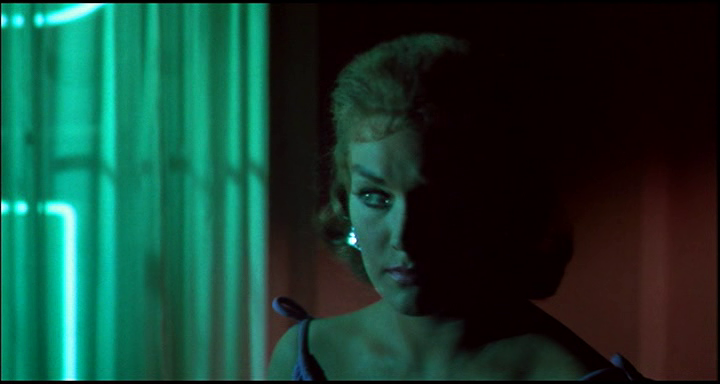
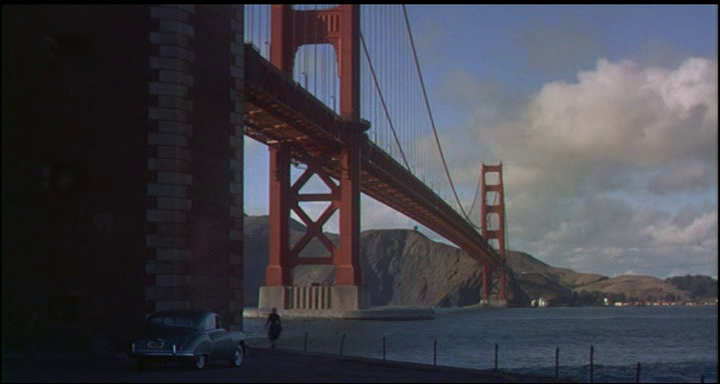
One thought on “Vertigo (1958)”
A no-brainer must. One of Hitch’s best films – and possibly his most unique.
I had seen the 1996 restoration of ‘Vertigo’, which in itself was an impressive discovery. However…
I’ve just seen the recent Blu-ray release – and it’s almost as if I’d never seen the film before; it is *that* striking a difference/improvement. I will admit I do not know a whole lot about the Blu-ray process – even though a few people have explained to me in some detail about how it works. Apparently, the look of a Blu-ray release (the difference between stunning and what would just look like a very good print) depends on how the process is applied to a particular title. As I mentioned in my post on Ray’s ‘King of Kings’ (which, like ‘Vertigo’, is among the titles which currently represent the best in Blu-ray presentation)’, the difference was immediate and significant. Ray’s film has long been a favorite of mine, so I had seen it many times over the years – my eyes were conditioned to the film having a certain look. So naturally I was quite surprised by the Blu-ray version, and its vivid presentation of intricate detail.
What made this viewing of ‘Vertigo’ different, by way of its Blu-ray presentation, is that my feelings about the *characters* changed this time around – and I felt much more pulled in by what they were doing, how they reacted, developed, etc. I enjoyed this viewing more than any other time I’ve seen the film. I’ve always admired ‘Vertigo’ – but now I have a much deeper appreciation of it – and its extremely well-thought-out design and look. In general, how we feel about a film can have something to do with the way it was presented to us – whether we saw a bad print, whether we watched it on YouTube as opposed to a bigger screen, etc. Some films can remain powerful almost regardless of presentation – they’ll have enough power to break through somehow. But the particular allure of ‘Vertigo’ has somewhat eluded me and I’ve always remained somewhat unsatisfied by it…not by the ending at all – as Peary claims – but just in general.
A major plus of the Blu-ray of ‘Vertigo’ is that it points up the film’s dream-like nature (which extends through most of the film; one almost needs to go into the film largely accepting it on a dream level anyway if the film is to work for the viewer). If anything is ‘infuriating’ about the film (though I don’t really think that’s the case), it’s that it blends a dream with reality, and we’re left without a clue as to where one ends and the other begins. ‘Vertigo’ plays completely on our emotions and is not designed to make sense: it’s designed to be a mind-fuck – and it succeeds brilliantly.
This is probably one of the best *acted* of Hitch’s films. Since most of his films hinge on plot, they don’t usually demand great acting from his casts. Like a few other Hitch films, perhaps, ‘Vertigo’ is an exception. And, again, the behavior exhibited in this film can’t always be accepted on a realistic level – even though what’s played (by the main characters in particular) is done so with utmost conviction. (I happen to love what Bel Geddes does with her part – she is one of the peripheral characters placed firmly in reality and it’s always clear she has no place in the dream scenario; in a way, though she’s kept at arms length by Stewart in an almost-cold fashion, it seems he does that because he is a hopeless romantic and does not recognize Bel Geddes as anything beyond a practical person.)
The specific issue shared by Stewart and Novak (who are both, here, doing some of the best work of their careers) seems to be that both characters suffer from considerable low self-esteem. We seem to have two very damaged and insecure people here who become entwined in an unusually complex manner (set by the plot as well as by their own emotions). One has a hard time imagining things working out well for them in the future even if the plot would *allow* for that. 😉 Perhaps the film’s most bizarre line comes when Stewart has pressed Novak so far in his attempts at re-living the past that he seems to negate her humanity completely: “It can’t matter to you!” (And, apparently, it doesn’t; she succumbs.)
On a certain level, ‘Vertigo’ serves as a cautionary tale regarding falling in love with someone mysterious, someone who does not put his or her cards on the table. We all know that’s a red flag. But, more clearly, the film is about the danger of being gullible.
One might remember, overall, that Hitch never set out to be a director with a ‘message’. Noel Coward once said he was born with ‘a talent to amuse’. In similar fashion, Hitch always seemed to take pride in his own talent to amuse, but his is coupled with a talent to provoke. What we keep hearing now is that Hitch may very well have had his own psycho-sexual issues. But, if that’s true, I can’t think he would allow them to spill over into his work – and, to a large degree, they don’t seem to. Still…in a number of his films in the latter part of his career, ‘the urge to merge’ does become a more dangerous and complex thing indeed.